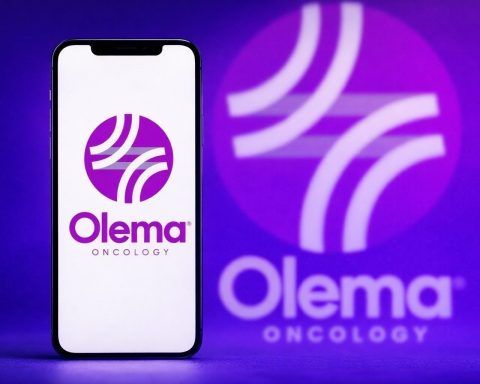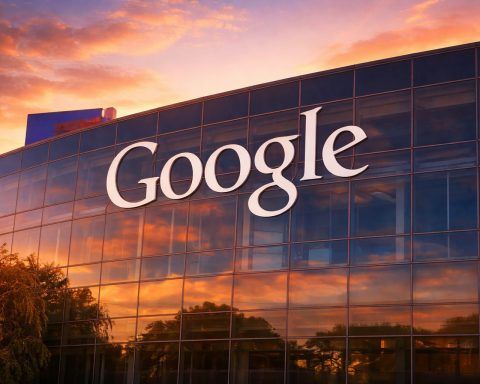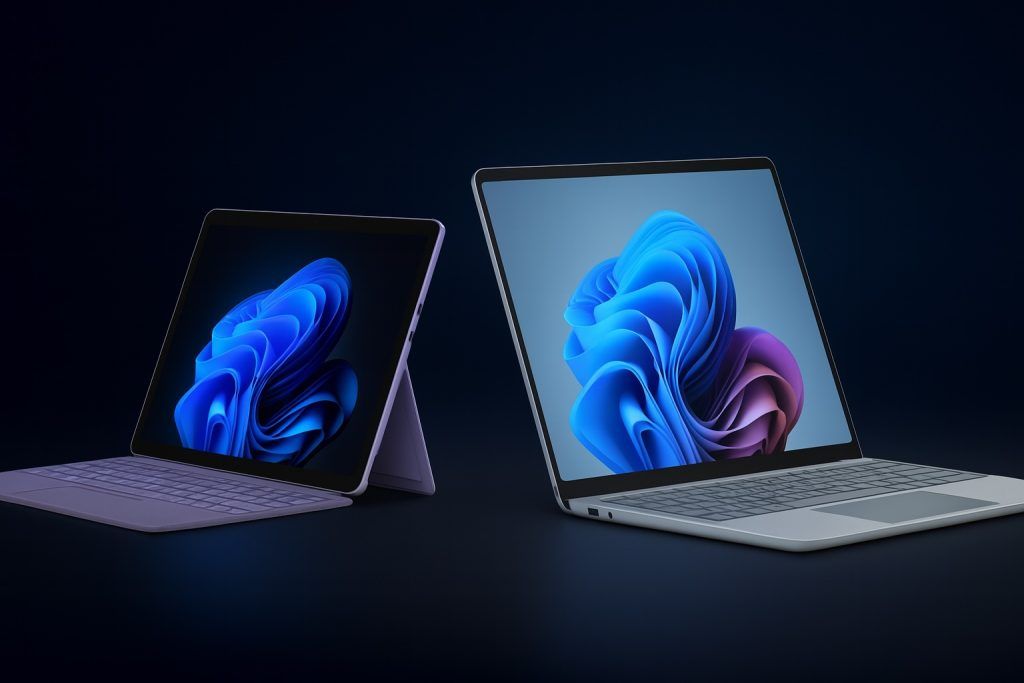- On July 23, 2025, French researchers led by Eleni Diamanti published a protocol in PRX Quantum to quantify the accuracy of quantum information transmissions with untrusted devices, enabling verification of entangled photon messages even with simulated loss and attacks while preserving quantum data.
- Two independent groups reported that diamond-based quantum sensors could operate more than 100 sensor qubits in parallel using NV-center diamonds, marking a ninefold increase toward scalable quantum sensing.
- On July 24, 2025, SuperQ Quantum Computing Inc. announced its first commercial revenue from a project with D-Wave and Verge Ag to optimize route planning for autonomous farm robots across thousands of fields.
- Qunnect closed a $10 million financing round led by Airbus Ventures to deploy entanglement-based QKD over telecom fiber and accelerate quantum-safe networks.
- Amazon Web Services unveiled a 54-qubit superconducting processor on Braket on July 21, 2025, part of the race to achieve useful quantum advantage.
- IBM reported its 127-qubit Eagle quantum processor is online as of mid-2025, part of the global push toward quantum advantage.
- Governor J.B. Pritzker announced on July 23, 2025 that Infleqtion will locate its global quantum computing division headquarters in Chicago, build a utility-scale neutral-atom quantum computer at the Illinois Quantum and Microelectronics Park (IQMP) with the codename Sqale, and receive about $50 million in state investment.
- PsiQuantum is constructing a $1.0+ billion, million-qubit quantum supercomputer facility at the Chicago site, aiming to deliver the first utility-scale fault-tolerant quantum computer in the U.S. by 2028.
- The U.S. Congress held a hearing titled “Preparing for the Quantum Age: When Cryptography Breaks” urging faster post-quantum encryption adoption and sustained federal R&D to maintain a technological lead.
- The Global Quantum Forum in Chicago on July 23–24, 2025 brought together dozens of companies, investors, and researchers to forge partnerships and fund quantum initiatives.
In a whirlwind 48 hours for quantum technology, July 23–24, 2025 saw major developments across quantum computing, communication, sensing, and cryptography. From new research that bolsters quantum networks to big corporate milestones and government investments, the quantum landscape is evolving rapidly. Below we round up the key breakthroughs, deals, and policy moves – and what experts are saying about this quantum leap.
New Research & Breakthroughs
Trustworthy Quantum Links: A quantum communication breakthrough published on July 23 promises more reliable and secure quantum networks. A French team led by Eleni Diamanti demonstrated a new protocol to “quantify the accuracy” of quantum information transmissions even when the hardware is untrusted Aps. In their experiment, an entangled photon message was sent to a partly untrusted receiver with simulated loss and attacks; the protocol successfully verified the message’s integrity without needing to trust the devices’ inner workings Aps. Crucially, unlike earlier methods, their technique preserved the quantum information while detecting issues Aps. This advance – published in PRX Quantum on July 23 Aps – could “improve the reliability of a wide range of quantum networks”, according to Physics Magazine Aps. It directly addresses quantum cryptography concerns by ensuring quantum key distribution (QKD) and other quantum links remain secure and faithful even if parts of the system are flawed or under attack.
Scaling Up Quantum Sensors: Progress in quantum sensing was also highlighted. Earlier this month, two independent research groups reported they had optimized diamond-based quantum sensors by operating more than 100 sensor qubits in parallel Aps. This ninefold increase in sensor count (using NV-center diamonds) marks a step toward scalable quantum sensors that could detect signals with unprecedented precision. Longer coherence times and parallel operation of hundreds of quantum sensors promise breakthroughs in fields like microscopy, navigation, and gravitational-wave detection. Together, these research advances underscore how quantum science is rapidly moving from theory to real-world tech – fitting for 2025, the UN-designated International Year of Quantum Science and Technology Quantum2025.
Corporate Announcements & Industry Milestones
Quantum Computing Meets Real Revenue: On July 24, SuperQ Quantum Computing Inc. – a Canadian quantum startup – announced its first-ever commercial revenue from a quantum computing project Thenewswire. In a collaboration with D-Wave Quantum and agriculture tech firm Verge Ag, SuperQ applied D-Wave’s quantum annealing processors to optimize the route planning of autonomous farm robots on thousands of fields Thenewswire. This project, part of Verge’s Launch Pad platform, marks a rare instance of quantum computing directly powering a customer-facing product in industry. Canada’s Digital Technology Supercluster hailed it as “the world’s first customer-facing, real-world product powered by quantum computing” Thenewswire. SuperQ’s CEO, Dr. Muhammad Khan, emphasized that the milestone is “more than a financial achievement – it’s a validation of our strategy to deliver real-world quantum solutions”, noting that while many rivals “are content in the lab, our R&D is rooted in commercialization” Thenewswire. The revenue-generating project demonstrates quantum’s move from hype to tangible value, in this case using quantum optimization to improve agricultural automation.
Investments and Partnerships: The quantum industry also saw significant funding and partnership news aligned with these dates. At the Global Quantum Forum in Chicago (July 23–24), numerous companies and investors gathered to forge ties in the burgeoning quantum ecosystem. (Notably, just ahead of the forum on July 14, Boehringer Ingelheim announced a partnership with Google Quantum AI for drug discovery using quantum algorithms Hpcwire, underlining cross-industry interest in quantum computing.) Meanwhile, earlier this week quantum networking startup Qunnect closed a $10 million financing round to expand its quantum communication infrastructure (deploying entanglement-based QKD over telecom fiber) – an investment led by Airbus Ventures to accelerate quantum-safe networks X. And on the hardware front, industry giants continue to advance qubit technology: Amazon Web Services introduced a new 54-qubit superconducting processor on its Braket cloud (July 21) and IBM’s 127-qubit Eagle system is already online – all part of a global race to achieve useful quantum advantage. The flurry of corporate activity shows a sector maturing quickly, with startups and tech titans alike racing to scale up devices and secure strategic capital.
Government & Regulatory News
Illinois Bets Big on Quantum: “We have made an aggressive pitch to this burgeoning industry: come build the future right here in Illinois,” Governor J.B. Pritzker declared on July 23 Capitolnewsillinois. That day, Pritzker announced a major quantum computing investment: Colorado-based quantum company Infleqtion (formerly ColdQuanta) will locate its global quantum computing division headquarters in Chicago Prezly. In partnership with the state, Infleqtion plans to build a “utility-scale” neutral-atom quantum computer as a flagship tenant at the new Illinois Quantum and Microelectronics Park (IQMP) Prezly Prezly. This public-private project brings an expected $50 million investment, dozens of high-tech jobs, and the development of Infleqtion’s next-generation neutral-atom processor (codenamed “Sqale”) in Illinois Prezly Prezly. “I’m excited to announce Infleqtion will be building their neutral atom quantum computer right here in Chicago… creating good jobs and economic opportunity for all,” Pritzker said at the announcement Prezly, which coincided with the inaugural Global Quantum Forum.
This move cements Illinois’s strategy of becoming a national quantum hub. The state had already committed $500 million to establish the South Side Chicago “quantum campus,” including over $200 million in incentives to lure PsiQuantum last year Capitolnewsillinois. (PsiQuantum is constructing a $1.0+ billion, million-qubit quantum supercomputer facility at the site – expected to be the first utility-scale, fault-tolerant quantum computer in the U.S. by 2028 Techxplore Techxplore.) Infleqtion will receive a more modest $5.3 million state tax credit under Illinois’ MICRO Act program to support its expansion Capitolnewsillinois Capitolnewsillinois. Officials stress the broader impact: the IQMP campus is projected to generate up to $20 billion in economic activity and thousands of jobs as companies, startups, federal labs, and universities co-locate there Prezly. “Our region clearly has the talent, infrastructure and resources to lead the quantum revolution,” said Christy George, CEO of Intersect Illinois, at the forum Capitolnewsillinois. The announcement did face local community scrutiny (with a handful of protesters calling for community benefit agreements) Capitolnewsillinois, but city leaders noted efforts to involve local students in quantum training programs Capitolnewsillinois. Overall, the strong state backing – Illinois even previously allocated $200 million to support the Chicago Quantum Exchange Prezly – underscores a governmental race to attract quantum innovation. Lawmakers beyond Illinois are taking note: just last month, the U.S. Congress held a hearing titled “Preparing for the Quantum Age: When Cryptography Breaks,” urging acceleration of post-quantum encryption and sustained federal R&D so the U.S. “sustains its technological lead on the world stage” House House.
Expert Commentary & Outlook
Industry and academic experts reacted to these developments with optimism – and a dose of urgency. “This underscores the region’s growing role as a global quantum leader and reinforces the importance of public-private partnerships in driving innovation,” said P33 CEO Brad Henderson, applauding Illinois’ initiative to link government, industry, and academia Prezly. Matthew Kinsella, Infleqtion’s CEO, emphasized that building the first large-scale neutral-atom quantum computer is “a critical step toward unlocking quantum advantage and ushering in a new era of scientific and economic leadership.” Prezly On the startup front, SuperQ’s Dr. Khan pointed out that tangible commercial wins are validating the field’s promise: real customers are now “experiencing the tangible value quantum computing can bring to critical industries” like agriculture Thenewswire.
Security specialists, meanwhile, warn that quantum’s rise is a double-edged sword: as powerful quantum computers loom, the “quantum threat” to classical encryption is real and imminent, and organizations must act now to adopt quantum-safe cryptography. Governments are responding – from the U.S. mandating post-quantum encryption for federal agencies to international efforts like Europe’s EuroQCI quantum-secure network – but experts caution that the clock is ticking before quantum code-breaking becomes reality.
Bottom line: over these two days, quantum technology made significant strides on all fronts – scientific, commercial, and political. A new quantum networking protocol is making communications more secure Aps Aps; companies are delivering real-world quantum solutions and securing funds Thenewswire Thenewswire; and governments are investing unprecedented sums to become the home of the next quantum breakthroughs Capitolnewsillinois Techxplore. As we enter the second half of 2025, dubbed the “Year of Quantum,” the message from the community is clear: the quantum revolution is accelerating, and those who invest and innovate now will lead the next era of computing, communication, sensing, and security. “It is one of very few technologies that you can view as generationally important and on the brink of becoming real,” observes PsiQuantum co-founder Pete Shadbolt Techxplore – and the flurry of news in these 48 hours certainly backs that claim.
Sources: News releases and articles from July 23–24, 2025, including Physics Magazine Aps Aps, SuperQ/TheNewswire Thenewswire Thenewswire, Illinois Governor’s Office Prezly Prezly, Capitol News Illinois Capitolnewsillinois Capitolnewsillinois, TechXplore/Bloomberg Techxplore Techxplore, and other expert commentary House Prezly.



